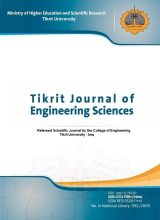Abstract
Electric discharge machining (EDM) is considered one of the most energy-efficient production methods for the highly accurate processing of any electrically conductive materials, regardless of mechanical characteristics. EDM is a non-contact method used in a diverse range of industries, including aerospace, industrial, instruments, molds and dies, and medical tools, particularly for hard materials with simple or intricate geometries and shapes. This review investigated EDM research in process, material, operational parameter selection, the influence on outputs, numerous process varieties, and innovative strategies to improve performance. The present study presented an overview of the EDM process with different angled electrode geometry, optimization, and modeling of method parameters, and the effect of parameters such as material removal rate (MRR), pulse shape, and surface roughness. This review (1) organized the published literature in a specific way, with an emphasis on both theoretical and experimental findings investigations to enhance the process performance, such as the rate of material removal and quality of surface, among others, and tool wear; (2) investigated assessment methods and procedures used to evaluate process circumstances; and (3) examined the EDM improvements and predicted future trends study. The article's conclusion section extracts specific points and gaps in each part. As a result, the article is straightforward to comprehend and incredibly beneficial to the scientific community.
Keywords
EDM
Electrode Geometry
MRR
Optimization
surface roughness
